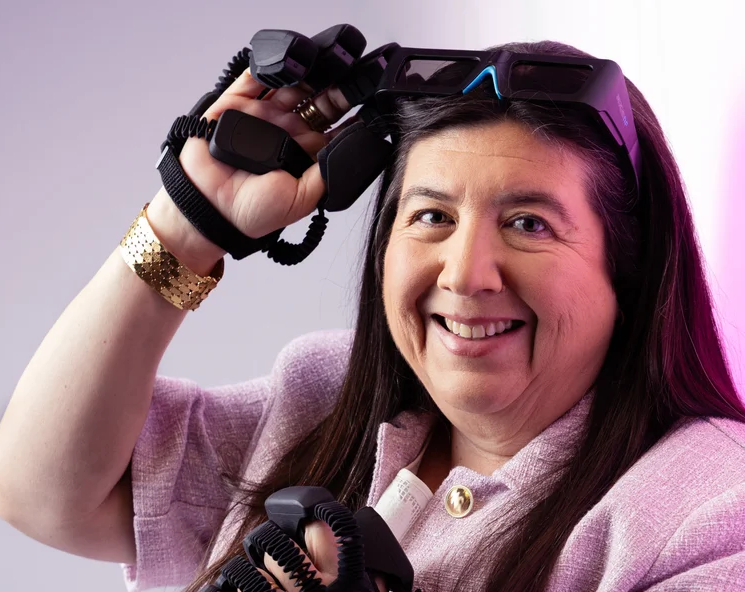
Carolina Cruz-Neira, Ph.D.
Executive Director, Pegasus Research Institute
Interim Director, Institute for Simulation & Training
Agere Chair Professor
Lab:
Contact:
407-823-2341
carolina@ucf.edu
Dr. Carolina Cruz-Neira, a University of Central Florida faculty and a member of the National Academy of Engineering, is a pioneer in the areas of virtual reality (VR), interactive visualization, and digital twins. Her innovations have been instrumental in facilitating data analysis, decision-making, design reviews, and training and education. Her work evolved into standard tools used in industry, government, and academia.
She is known worldwide for being the creator of the CAVE VR system, for transferring research into practice by spearheading Open-Source initiatives, and for supporting entrepreneurial initiatives to commercialize research. She is recognized for founding successful applied research centers: the Virtual Reality Applications Center at Iowa State University, the Louisiana Immersive Technologies Enterprise, and the Emerging Analytics Center at the University of Arkansas. Her research leadership has received recognition from major companies for increasing product safety and improving design and production processes that have saved time, lives, and millions of dollars.
She enjoys intersecting her research with the arts and the humanities through dance performances and museum installations. She has been named among the top innovators in virtual reality and one of the top three greatest women visionaries in VR. She is the first person inducted to the National Academy of Engineering for immersive technologies and virtual reality; she has been inducted to the US Congressional Record, she is a member of the IEEE VR Academy, an IEEE Fellow, an ACM Computer Pioneer, an AWE XR Hall of Fame member, and a Modeling and Simulation Hall of Fame. She received the IEEE VR Achievement Award and the International Digital Media & Arts Society Distinguished Career Award, among many national and international recognitions. She serves on national and international technology boards as well as government technology advisory committees.
Her life’s work addressing large problems through interdisciplinary teams has become a key to innovation and is considered standard practice in driving American competitiveness in the global economy.

